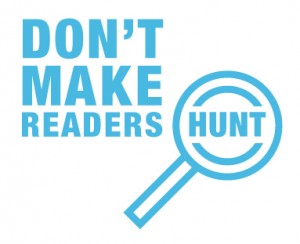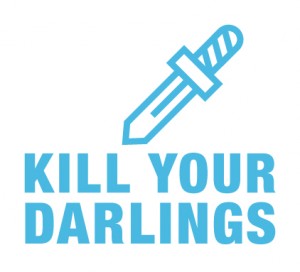Be a Better Writer
04.08.15 · Greteman Group
Not everyone can be a great writer, but everyone can be a better writer. Whether you’re drafting a press release about a first-generation, game-changing aircraft; a profile introducing your new CEO; or an in-depth feature for your company’s in-house newsletter, pause a moment. Consider your potential readers and what they most want to find within your prose.
Who, What, When, Where, Why
Follow the basics of information gathering. Deliver the facts, the supporting justification and what it all means. Tell readers why they should care. Is this zippy new plane going to reduce their flight departments’ operating costs or shave hours off travel time? What turf does it claim in the competitive landscape? Spool out this critical data clearly. Don’t make your readers hunt.
their flight departments’ operating costs or shave hours off travel time? What turf does it claim in the competitive landscape? Spool out this critical data clearly. Don’t make your readers hunt.
Know Your Stuff
Take the time needed to get it right. Write with authority. The late New York Times columnist David Carr said, “It wasn’t that I wanted to be a writer: I just didn’t want to be stupid.” Research your facts. Find more if you’re lacking. Talk to those in the know. Respect your readers enough to not give them short shrift.
Sprinkle Incentives Throughout
Once you’ve hooked readers, keep pulling them through with regular rewards – quotes, anecdotes, insights, little-known facts. It’s not enough to have a grab-them-by-the-throat lead and big-payoff close. Place interesting content along the way, like breadcrumbs leading home.
Banish “Excited” From Your Vocabulary
This may seem trivial, but it’s a sore spot. I never want to see the word again. Ever. Since the first CEO said, “I am excited to announce our new [fill in the blank],” that statement has been used a centillion times. At a minimum. Come up with something fresh, meaningful and unexpected. At a loss? Find inspiration in the words of aviation legends. Notice the lack of highfalutin words. They kept it short and snappy. And so should you.
- E.M. Laird spoke frankly about how his factory responded to all its orders in the 1920s, saying “Everybody went wild.”
- Beechcraft founder Walter Beech summed up his company’s product line with this simple sentence: “We sell transportation.”
- Clyde Cessna cut to the chase saying, “Speed is the only reason for flying.”
- And Bill Lear, one of the most quotable aviation CEOs of all time, reduced his accomplishments to these memorable lines: “They said I’d never build it; that if I built it, it wouldn’t fly; that if it flew, I couldn’t sell it. Well, I did, and it did, and I could.”
Every Platform Deserves Good Writing
Yes, you only have 140 characters for Twitter and feeding the social-media beast can feel like tossing coal into a furnace that burns faster than you can shovel. But whether your audience consumes your content online or off, you need to create professional content. You need to get it right. You need to make it worth readers’ while. And I promise you. A Lear-like quote will get shared more than an “I’m excited.” Any day.
Exclamation Points Scream “Amateur!”
Punctuation gives us pause. Literally. A period signals the close of a thought; a comma, a needed break. An exclamation jolts you. Get slapped with several in a paragraph, and you feel abused. They signal a flailing about. A failure to communicate your point by words alone. An exclamation mark for anything less than “Fire!” rings of desperation. This applies to your corporate social media, too, by the way. 
Ask Others to Edit Your Work
You cannot find your own mistakes. Ask someone whose opinion you trust to read your content for clarity, grammar and all-around readability. And take suggestions graciously. You asked for input. No need to get all defensive. Once your flushed face cools, you’ll no doubt realize that she’s actually right about that convoluted sentence you labored over for an hour. Attack it again. You’ve heard the phrase, “Kill your darlings.” Do it. 
Grind It Out
Writing takes work. I hope this practical advice helps you become a better writer. Because I truly want to hear what you have to say and might miss key points if you package them poorly. As you wrangle ideas, you can still inject some word play. Langston Hughes said it best: “Hold fast to dreams, for if dreams die, life is a broken-winged bird that cannot fly.”
This column ran in the April 9 issue of BlueSky Business Aviation News.
